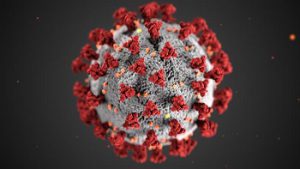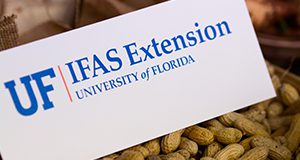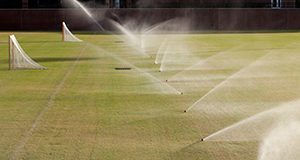This third publication in the Road to Recovery series provides information and recommendations to support Extension professionals’ ability to facilitate capacity building and resilience development for communities during COVID-19 and potential future pandemic situations. This new 5-page publication of the UF/IFAS Department of Agricultural Education and Communication was written by Cody Gusto, Colby Silvert, and John Diaz.
https://edis.ifas.ufl.edu/wc380
Tag: Extension Agent Training and Resources
Identifying and Meeting the Needs of Extension’s Target Audiences
This new 4-page article provides an overview of the concept of target audiences as relating to Extension education and briefly presents concepts of audience analysis and educational content selection. In contrast to the general population, a target audience is comprised of people who can take some explicit action to help solve an identified problem addressed by an Extension program. Sometimes they are also those most affected by that problem. An understanding of the concept of target audiences paired with intentional selection of appropriate educational activities and content can support an impactful Extension program. Written by Laura A. Warner, Glenn D. Israel, and John M. Diaz, this article is a publication of the UF/IFAS Department of Agricultural Education and Communication.
http://edis.ifas.ufl.edu/wc336
Program Evaluation Challenges for Early-Career Extension Professionals: What Can You Do to Reduce the Stress?
This article outlines meaningful strategies to overcome the program evaluation challenges that early-career Extension professionals face. The strategies outlined in this article are grounded in the experiences of Extension professionals in three states (Florida, North Carolina and Pennsylvania) and center on providing solutions to the challenges that newer Extension professionals felt were the most important to address, in order to provide a manageable framework for agents to use. This new five-page publication of the UF/IFAS Department of Agricultural Education and Communication was written by John Diaz and Laura Warner.
http://edis.ifas.ufl.edu/wc335
Water Conservation and Extension Participants: An Interesting Synergy
The home landscape is a place where there is a great opportunity for people to adopt irrigation practices and technologies that conserve water. However, a large portion of residents lack the required knowledge and skills to adopt some of those practices. This three-page fact sheet discusses using innovative evaluation approaches to demonstrate the impacts of statewide urban water conservation programs. Written by Laura A. Warner, Sebastian Galindo-Gonzalez, and Anil Kumar Chaudhary and published by the Department of Agricultural Education and Communication.
http://edis.ifas.ufl.edu/wc278
Estimating Return on Investment (ROI) for a Behavior Change: An Evaluation Tool for Extension Programs
Extension professionals can benefit from knowing the value of a program’s outcomes compared to how much it costs. One way to estimate a program’s value relative to cost is through a series of calculations, known as Return on Investment (ROI). This four-page fact sheet describes ROI and how Extension professionals can use it in their programming. Written by Amanda D. Ali, Laura A. Warner, and Hayk Khachatryan and published by the Department of Agricultural Education and Communication.
http://edis.ifas.ufl.edu/wc270
Guidelines for Operation and Usage of County Kitchens in the State of Florida
 In recent years, many people have become interested in developing small food businesses. Using county kitchens to make food products for sale may seem very attractive. However, because of different local, state, and federal regulation requirements, there may be some confusion and unresolved conflicts among different parties as to the legalities and practicalities involved. This 3-page fact sheet provides guidelines and advice for Florida Extension personnel to use when determining the appropriate usage for their kitchen facilities, based on a situation in one Florida county. The publication covers utilization, roles and responsibilities, and potential liability issues relevant to the use of county kitchens, providing some potential solutions to conflicts for all parties. Written by Amarat Simonne, Tim Wilson, Geralyn Sachs, Joanne Cooper, Brenda Morris, Steven von Bodungen, and Liz Felter, and published by the UF Department of Family, Youth and Community Sciences, August 2016.
In recent years, many people have become interested in developing small food businesses. Using county kitchens to make food products for sale may seem very attractive. However, because of different local, state, and federal regulation requirements, there may be some confusion and unresolved conflicts among different parties as to the legalities and practicalities involved. This 3-page fact sheet provides guidelines and advice for Florida Extension personnel to use when determining the appropriate usage for their kitchen facilities, based on a situation in one Florida county. The publication covers utilization, roles and responsibilities, and potential liability issues relevant to the use of county kitchens, providing some potential solutions to conflicts for all parties. Written by Amarat Simonne, Tim Wilson, Geralyn Sachs, Joanne Cooper, Brenda Morris, Steven von Bodungen, and Liz Felter, and published by the UF Department of Family, Youth and Community Sciences, August 2016.
http://edis.ifas.ufl.edu/fy1469
Promoting Ag Awareness through Commodity Fact Sheets
Increasing public awareness of Florida agriculture is a vital step in motivating the public to support agriculture. A basic understanding of Florida’s agricultural products, their impacts on the economy and the environment, and their availability contributes to Extension’s mission to sustain and enhance quality of life. This three-page publication outlines a series of fact sheets with infographics related to specific Florida agricultural commodities. These fact sheets are intended to be visually appealing while presenting an overview of the commodity and its role in Florida agriculture. Written by Kathryn A. Stofer, Jessica Sullivan, Joy Rumble, and Libbie Johnson and published by the Department of Agricultural Education and Communication.
http://edis.ifas.ufl.edu/wc253
Extension Professionals: Anticipating and Solving Common Challenges in Planning and Delivering Educational Programs
 The work of an Extension agent demands much more than just subject knowledge. An Extension career is exciting because no two days are the same. With that comes a variety of unexpected challenges. The delivery of programs to diverse clienteles is, in itself, a skill and something that Extension agents improve over time. This article summarizes some common problems associated with delivering Extension programs and to recommend solutions. This 5-page fact sheet was written by Laura A. Warner and Kathryn A. Stofer, and published by the UF Department of Agricultural Education and Communication, September 2014.
The work of an Extension agent demands much more than just subject knowledge. An Extension career is exciting because no two days are the same. With that comes a variety of unexpected challenges. The delivery of programs to diverse clienteles is, in itself, a skill and something that Extension agents improve over time. This article summarizes some common problems associated with delivering Extension programs and to recommend solutions. This 5-page fact sheet was written by Laura A. Warner and Kathryn A. Stofer, and published by the UF Department of Agricultural Education and Communication, September 2014.
http://edis.ifas.ufl.edu/wc178
Maintaining Professionalism on Facebook: Tips for Extension Agents (WC107)
Facebook has revolutionized the world in which we communicate. In just a few mouse clicks, you can access personal information, pictures, recent conversations, and much more about your Facebook “friends.” With these things in mind, it is important to carefully consider the implications of becoming a Facebook friend. This 4-page fact sheet discusses professionalism and legal considerations for using Facebook as a tool to promote Extension programs. Written by Amy Harder, Hannah S. Carter, and Christy Chiarelli, and published by the UF Department of Agricultural Education and Communication, April 2011.
http://edis.ifas.ufl.edu/wc107
ENY501/IN788 Educate to Detect: Conducting First Detector Training in Florida
ENY-501, a 5-page fact sheet by Amanda Hodges, Jennifer Gillett-Kaufman, Carrie Harmon, Aaron Palmateer, Pamela Roberts, Adrian Hunsberger, Sylvia Shives, Theresa Friday, and Jiannong Xin, answers questions about the NPDN First Detector training program, which promote the early detection and proper identification of potentially devastating exotic species through a coordinated extension education effort. Includes references. Published by the UF Department of Entomology and Nematology, December 2008.
http://edis.ifas.ufl.edu/IN788





